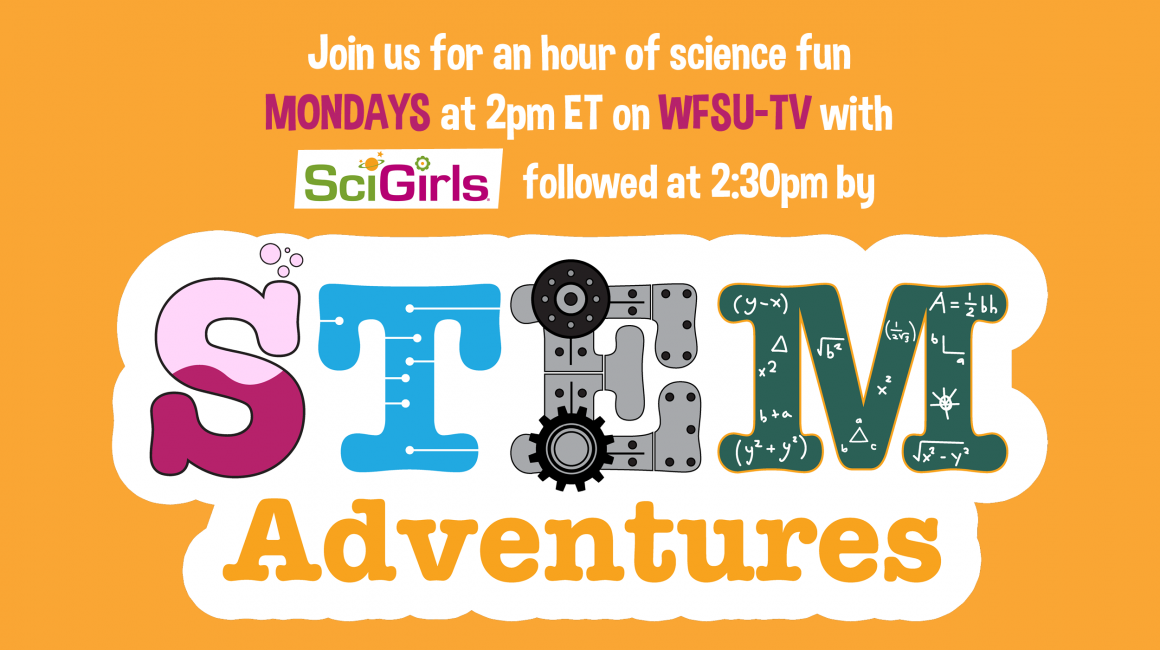STEM Adventures

Since 2006, WFSU Public Media and the National High Magnetic Field Laboratory (MagLab) have provided middle school girls meaningful STEM experiences in a special hands-on summer camp. The goal was to encourage young girls to enter STEM careers. Each summer, these young women visited scientists, conducted field experiments and learned about careers they had never heard of before.
In spring 2020, the camp application process had already begun when the COVID-19 pandemic forced everyone to adjust their plans. We, along with the MagLab, decided to create virtual experiences that would support girls STEM exploration over the summer.
We started by focusing on five local organizations that offer STEM resources to students and would normally have been a field trip location for campers: The MagLab (physical sciences), The Challenger Learning Center (space exploration), FSU Coastal and Marine Laboratory (marine biology), Florida Center for Interactive Media (coding and game design) and Tallahassee Animal Services (biology). Each 30-minute episode focused on the STEM topic tied to each of these organizations.
From the beginning, we wanted our young viewers to be able to have activities they could do at home. Each organization provided one. We sought out recent SciGirls campers to demonstrate those activities. With minimal training from us, they used their own interpretation of the experiment instructions and their own cameras to shoot their activity video and sent it to us for editing.
Part of the SciGirls camp experience is that the young women get to meet and talk with women who have careers in the STEM fields. In each episode of STEM Adventures, Dr. Roxanne Hughes, Director for the MagLab’s Center for Integrating Research and Learning, interviewed women who were well established in a STEM career. Due to social distancing, we had the interviewers in the studio and the interviewees using their own web cameras to complete each segment.
Additional videos were either provided by the organizations or produced by us using new interviews and video or archival camp video. Each STEM Adventure episode was preceded by a national SciGirls program focusing on a related topic. Then the entire program was placed online as well as the individual segments.



